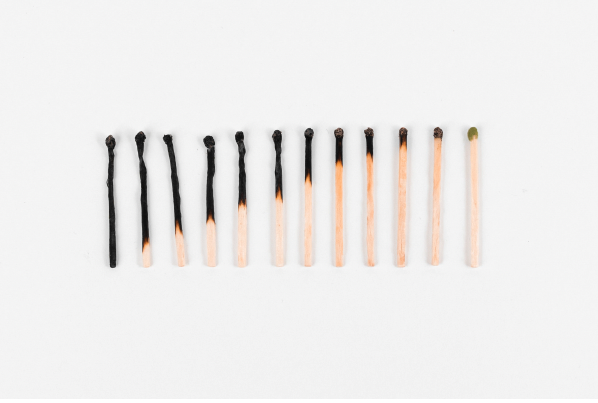No one has ever said on their deathbed that they wished they had spent more time at work. Yet many of us spend most of our adult lives acting as if that won’t be true of our own deathbed experience. Given how fast-paced life seems in the moment, we are tempted to be somewhat shortsighted. Career is important, you need to pay the bills, and you want to advance in your career and make a difference. There’s nothing wrong with that. The problem arises all too often when we stop being able to distinguish between what is good for our career and what is good for our lives and the lives of others around us. David Brooks gave a brief TED talk on this topic.
Many career-driven individuals make their professional accomplishments a priority. The metric for doing something worthwhile becomes whether or not you would add it to your résumé. Don’t get me wrong, developing your professional résumé is an important goal and often is the key to career advancement that might allow you to have a larger impact in the world. The risk of living a résumé-focused life is one of balance. If developing our resume becomes the driving motivation of our daily choices, we miss out. Most of the things that have long lasting impact on those around us, the small yet significant acts of kindness, are things that we would never put on our résumés. The significant elements of one’s eulogy have to do with the emotional imprint one has made on the lives of others. Yet, in order to create a life worthy of a moving eulogy, you cannot wait until the end of your life to evaluate whether your priorities were in the right place the whole time.
To quote Andy Bernard from The Office, “I wish there was a way to know you’re in the good ol’ days, before you’ve actually left them.” This type of hindsight regret is normal. Missed opportunities are easy to spot after we no longer have competing demands in the moment that make it difficult to recognize them. Yet despite this knowledge, we still often fall into the routine of missing the significance of a moment until much later, usually because we have been misguided to look for significance in other areas. So to echo Andy Bernard, is there a way to recognize the good ol’ days while you are still in them? Can you appreciate the moment, the opportunities of the present day, so that afterward you do not look back with regret? Can we fight the urge to be wrapped up in our daily career goals and see the larger effect we can have in the moment? Can you be a busy and successful professional while also living a life worthy of a moving eulogy?
The short answer is, “yes”. It just takes time to develop the routine. Here’s two ways to start:
- Beginning of the day: Ask yourself, “How can I be on the lookout for those significant moments in my day?”
- End of the day: Ask yourself, “What did I do today that might have had a lasting impact on others around me?”
You can learn a lot from looking back. You just want to do that regularly so that you have time to benefit from that hindsight.
Shawn Healy, PhD



